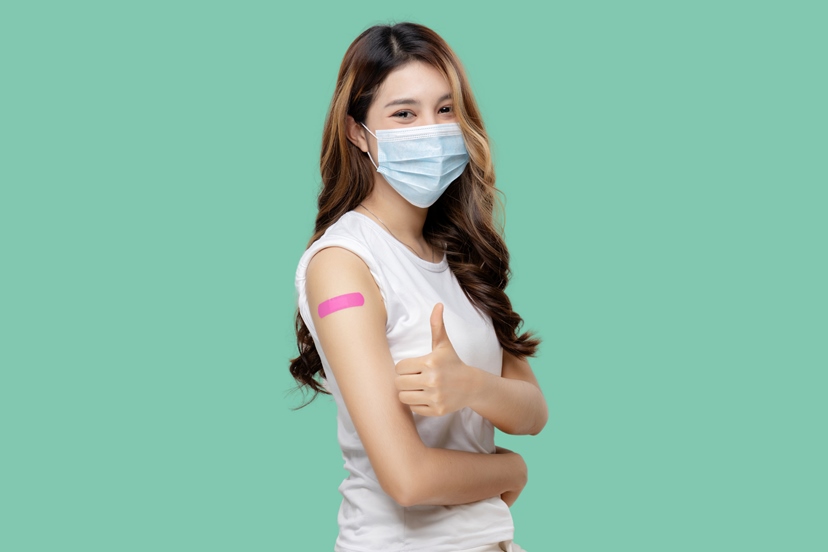Dengue Vaccine

Dengue fever is caused by the dengue virus, which is transmitted by Aedes aegypti mosquitoes. It is a significant public health concern because there is no specific treatment patients can only receive care for their symptoms. There are four strains of the dengue virus. Once a person has been infected, they develop immunity to that specific strain, but they can still be infected by other strains. A second infection often presents more severe symptoms than the first, sometimes leading to shock and even death in certain cases. Prevention is therefore paramount, and vaccination helps reduce the severity of the disease if reinfection occurs.
Who is at Risk of Dengue Fever?
1.Children
Children are at a high risk of infection because they are not yet able to fully protect themselves from Aedes mosquitoes. Even with close supervision from parents or guardians, it can be challenging to prevent mosquito bites at all times.
2.Working-Age Adults
Adults, particularly those living in urban areas, are at risk of contracting dengue fever through travel or exposure in the workplace.
3.Elderly
Older adults often have weaker immune systems and may also suffer from underlying health conditions such as diabetes, hypertension, or heart disease. These factors put them at a higher risk of serious complications from dengue fever.
4.Individuals with Chronic Conditions
Those with chronic illnesses like diabetes, hypertension, and obesity are more prone to severe symptoms if they contract dengue fever.
Dengue fever is a serious disease that spreads annually and can affect anyone, regardless of age. Although there is still no specific treatment, it can be prevented through dengue vaccination, which not only reduces the chance of infection but also lessens the severity of the illness if reinfection occurs. Protect yourself and your loved ones by getting vaccinated against dengue today, before it’s too late.
How Effective is the Dengue Vaccine?
The dengue vaccine Qdenga offers a high level of protection, reducing the chance of infection by up to 80% and lowering the risk of hospitalization by up to 90%. It requires only two doses administered three months apart, and currently, there is no recommendation for an additional booster shot.
Is the Dengue Vaccine Safe?
The Qdenga vaccine has undergone extensive testing in multiple countries, including Thailand. It has been endorsed by the World Health Organization (WHO) for its safety and is currently in use in over 40 countries. Results show that side effects are generally mild—such as pain, swelling, or redness at the injection site, or a mild fever (observed in around 10% of cases). These symptoms typically subside on their own within 2–3 days, similar to other types of vaccines.
When Can You Get Vaccinated? What If You’ve Just Recovered from Dengue?
It is possible to contract dengue fever more than once, and the second infection often presents more severe symptoms. If you have recently recovered from dengue, it is recommended to wait at least six months before getting vaccinated. This interval allows your body to develop optimal immunity from the vaccine.
Can People with Pre-existing Conditions Get Vaccinated?
Individuals with chronic illnesses—such as diabetes, heart disease, or high blood pressure—are two to four times more likely to experience severe dengue compared to those without these conditions. Therefore, they are strongly advised to receive dengue vaccination for added protection. It is recommended to consult with their regular healthcare provider before getting vaccinated.
Frequently Asked Questions about the Dengue Vaccine
1.Can I Postpone the Second Dose?
The Qdenga vaccine requires two doses administered three months apart. If you must delay the second dose, consult your physician to determine a suitable timeframe. However, for maximum effectiveness, it is advisable to complete both doses as recommended.
2.Can I Get the Dengue Vaccine and the Flu Vaccine at the Same Time?
Yes! You can receive both the dengue vaccine and the flu vaccine on the same day, with each shot administered in a different arm.
3.If I Get Vaccinated, Can I Still Get Dengue Fever?
The vaccine reduces the risk of dengue infection by 80%. However, if you do contract dengue after vaccination, it can lower the chances of severe illness and hospitalization by up to 90%.
Who Should Get the Dengue Vaccine?
The answer is “everyone”! The dengue vaccine is suitable for people of all ages between 4 and 60 years old. There is no need for a pre-vaccination immunity test, and it can be administered whether you have previously had dengue or not. The vaccination consists of two doses, given three months apart.
Good Health Begins with Family-Wide Prevention
Dengue fever does not discriminate by location. Even in major cities like Bangkok, high outbreak rates are recorded every year. Protecting everyone’s health in your family by getting the dengue vaccine is therefore crucial. Vaccination allows you and your loved ones to live life to the fullest without worry.
Remember, dengue fever does not guarantee safety for anyone, so don’t wait until it’s too late. Getting vaccinated against dengue is a worthy investment to safeguard the health of your entire family. For more information on dengue prevention, consult a specialist for guidance on the most suitable vaccine for you and your loved ones.
The Sooner You Get Vaccinated, the Faster You’re Protected—Stay Confident in Fighting Dengue as a Family!


